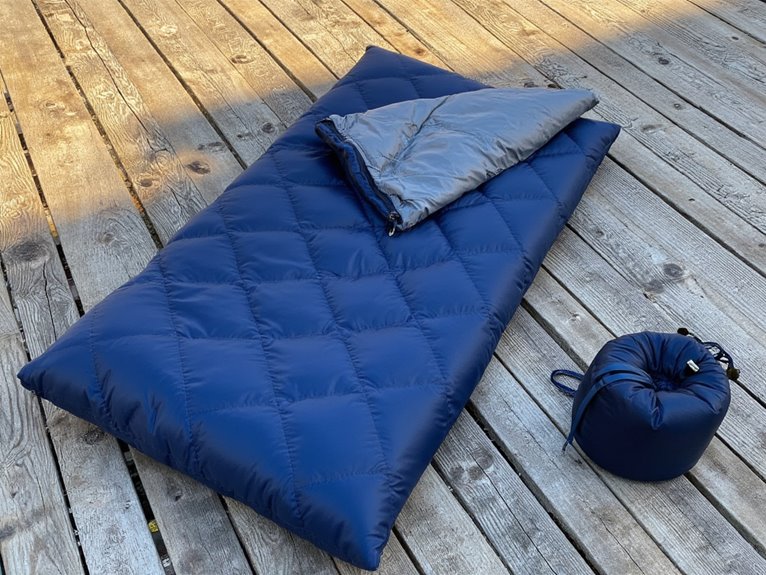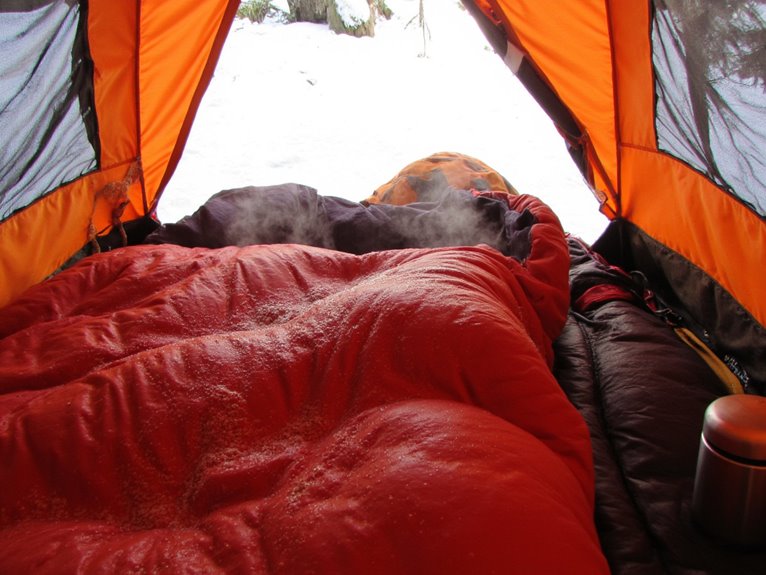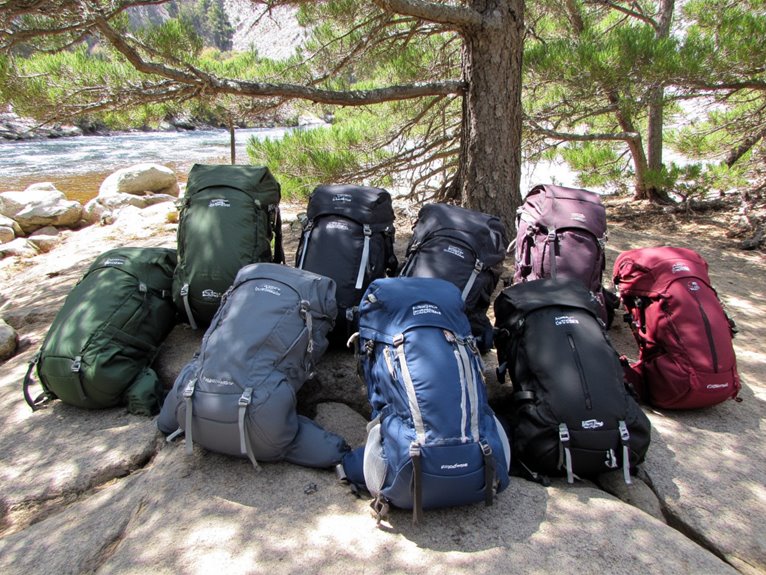Why Can't You Get Uggs Wet?
Water's corrosive properties can irreparably damage the delicate sheepskin material used in Uggs, leading to a loss of strength, flexibility, and overall integrity. When exposed to water, the natural oils that give sheepskin its softness and suppleness are compromised, leaving the material feeling stiff and brittle. Water causes discoloration, shrinkage, and cracking of the sheepskin, leading to an unsightly and irreversible texture. To maintain the quality and extend the lifespan of your Uggs, it's essential to protect them from water exposure. Understanding the consequences of water damage is vital to preserving your investment; there's more to learn about the importance of keeping your Uggs dry.
We are supported by our audience. When you purchase through links on our site, we may earn an affiliate commission, at no extra cost for you. Learn more. Last update on 21st January 2026 / Images from Amazon Product Advertising API.
Water Damages Delicate Sheepskin Material
Water can be particularly devastating to sheepskin, as it seeps into the delicate material and causes irreparable damage to the fibers, leading to a loss of strength, flexibility, and overall integrity.
This damage can result in a range of unwanted consequences, including discoloration, shrinkage, and cracking.
The natural oils that give sheepskin its softness and suppleness are also compromised, leaving the material feeling stiff and brittle.
Additionally, water can cause the fibers to felt, or mat together, leading to an unsightly and irreversible texture.
To maintain its quality and extend its lifespan, protecting sheepskin from water exposure is crucial.
Moisture Leads to Unpleasant Odors
When sheepskin is exposed to moisture, its natural fibers provide an ideal breeding ground for bacteria and fungi, which can quickly multiply and generate unpleasant, lingering odors.
As moisture seeps into the material, it creates a humid environment that fosters the growth of microorganisms.
These microorganisms break down the natural oils in the sheepskin, leading to the formation of compounds with strong, unpleasant smells.
The resulting odors can be difficult to eliminate, even with thorough cleaning and drying.
To prevent these unpleasant odors, it's essential to keep Uggs dry and avoid exposing them to excessive moisture.
Wet Conditions Foster Bacterial Growth
In the presence of moisture, the natural fibers of sheepskin provide a fertile breeding ground for bacterial growth, allowing microorganisms to thrive and multiply rapidly.
This creates an ideal environment for bacteria to flourish, leading to unpleasant odors and potential skin irritation.
The warm, damp conditions within the Uggs provide a perfect incubator for bacterial growth, making it difficult to eradicate the bacteria once they have taken hold.
As a result, for optimal care, one should avoid exposing Uggs to wet conditions, as this can lead to the rapid proliferation of bacteria, compromising the overall health and hygiene of the wearer.
Leather Dyes Run and Fade Quickly
When exposed to water, the leather dyes in Uggs can run and fade quickly, resulting in unsightly discoloration.
This is because the water can cause the dyes to bleed, leading to an uneven and faded appearance.
In addition, the water damage can also weaken the leather, making it more prone to cracking and subsequent discoloration.
Dye Runs and Fades
Most Ugg boot owners are dismayed to discover that the leather dyes used in their shoes are prone to running and fading quickly, often resulting in unsightly discoloration and staining.
This is particularly problematic when exposed to water, as the dyes can migrate and spread, causing permanent damage.
The porous nature of sheepskin leather allows the dyes to penetrate deeply, making them more susceptible to fading.
Additionally, the tanning process used to treat the leather can affect the color's stability, leading to uneven color loss.
In addition, the tanning process can also alter the chemical properties of the leather, making it more prone to discoloration.
As a result, even minor water exposure can cause significant discoloration, compromising the appearance of your Uggs.
It's essential to take preventative measures to protect your boots from water and moisture to preserve their appearance.
Water Damages Leather
Water exposure can cause the leather dyes to bleed and run, resulting in irreversible discoloration, as the porous nature of the sheepskin allows moisture to penetrate deep into the material, accelerating the fading process.
This damage is particularly concerning for Uggs, as the soft and supple sheepskin is more prone to water absorption.
When leather is exposed to water, the dyes can migrate, causing unsightly streaks and discoloration.
Even minor water exposure can lead to lasting damage, making it essential to avoid wet conditions altogether.
Color Loss Guaranteed
Exposure to moisture triggers a rapid breakdown of the leather dyes, causing them to run and fade quickly, which can result in a significant loss of color vibrancy and overall aesthetic appeal.
This color loss is particularly problematic for Uggs, as their signature sheepskin material is highly prone to water damage.
When leather dyes come into contact with water, they can bleed or migrate, causing discoloration and uneven fading.
This can lead to an unsightly, mottled appearance that's difficult to restore.
To maintain the original color and appearance of your Uggs, it's essential to avoid exposing them to excessive moisture.
Water Spots Leave Permanent Marks
One of the most frustrating consequences of moisture exposure is the formation of unsightly water spots that can leave permanent marks on your Uggs.
These spots occur when water seeps into the sheepskin, causing the natural oils to break down and leave behind a discoloration.
The resulting marks can be particularly stubborn, resisting removal and leaving your boots looking stained and worn.
Unfortunately, these marks are often irreversible, leaving you with a pair of Uggs that are no longer pristine.
To avoid this outcome, it's essential to take preventative measures, such as applying a waterproofing treatment or using a cleaning solution specifically designed for sheepskin.
Insulation Properties Are Compromised
When Uggs are exposed to water, the insulation within the boots becomes compromised, leading to reduced thermal performance.
This is because water damages the insulation, disrupting its ability to retain warmth.
As a result, the boots' ability to keep feet warm is substantially impaired, making them less effective in cold weather conditions.
Water Damages Insulation
Water penetration diminishes the insulating properties of Uggs, allowing cold temperatures to seep in and reducing the boots' ability to retain warmth. When water enters the boot, it saturates the insulation, causing it to lose its loft and trapping ability.
This compromise in insulation properties leads to a significant decrease in the boot's thermal performance. As a result, the foot is exposed to cold temperatures, making the wearer uncomfortable.
In addition, water can also cause the insulation to become heavy and clumpy, reducing its ability to retain warmth. This damage can be irreversible, resulting in a permanent loss of insulation performance.
To maintain their insulating properties and guarantee maximum warmth and comfort, it is vital to keep Uggs dry.
Reduced Thermal Performance
The compromised insulation properties of wet Uggs substantially diminish their thermal performance, allowing cold temperatures to penetrate the boot and reducing the wearer's comfort level.
This is because water can displace the air pockets in the sheepskin, reducing the insulation's ability to trap warm air.
As a result, the wearer's feet are more susceptible to cold temperatures, leading to discomfort and potentially even cold-related injuries.
Furthermore, the reduced thermal performance can also lead to increased heat loss, making the wearer feel colder than the ambient temperature.
This highlights the importance of keeping Uggs dry to maintain their thermal performance and ensure optimal comfort.
Excess Moisture Causes Shrinkage Issues
One of the primary concerns with Uggs exposed to excess moisture is that the sheepskin fibers will inevitably shrink, leading to a reduction in the boot's overall size and fit.
This shrinkage can be quite significant, resulting in a boot that no longer fits comfortably.
The fibers in Uggs are highly sensitive to moisture, and when exposed to excess water, they contract and tighten, leading to a smaller, less comfortable fit.
This can be particularly problematic for individuals who rely on their Uggs for daily wear or for specific activities, such as hiking or skiing.
To avoid this issue, it's crucial to take precautions to prevent moisture from penetrating the sheepskin fibers.
Wet Uggs Become Heavy and Clumsy
Excess moisture absorption causes Uggs to become weighed down, transforming them from a comfortable, agile footwear option into a heavy, cumbersome burden.
This added weight not only affects the overall wearability of the boots but also alters their performance. Waterlogged Uggs lose their flexibility, making them difficult to walk in, and the extra weight can cause discomfort and fatigue.
In addition, the heaviness can put additional stress on the seams and stitching, potentially leading to premature wear and tear.
As a result, it's essential to avoid exposing Uggs to excessive moisture to maintain their lightweight and agile nature. By doing so, you can guarantee your Uggs remain comfortable and functional for an extended period.
Sheepskin Hides Lose Their Natural Oils
When exposed to water, the natural oils within sheepskin hides begin to break down, compromising the material's integrity.
This process causes the hides to become brittle and prone to cracking, leading to a loss of softness that cannot be reversed.
As a result, the once-supple leather becomes stiff and rough, undermining the comfort and durability of the Ugg boots.
Natural Oils Break Down
Sheepskin hides, once rich in natural oils, gradually lose their protective moisture barrier over time, compromising their water-resistant properties.
These natural oils, also known as lanolin, play a vital role in repelling water and maintaining the hide's suppleness.
As the oils break down, the hide becomes more porous, allowing water to penetrate deeper into the material.
This deterioration of natural oils accelerates when exposed to water, making it even more challenging to maintain the hide's water-resistant properties.
To prevent this, it's essential to condition and protect your Uggs regularly, ensuring the natural oils are replenished and the hide remains healthy and resilient.
Hides Become Brittle Fast
Deprived of their natural oils, sheepskin hides rapidly lose their suppleness, becoming brittle and prone to cracking.
This is because the natural oils act as a protective barrier, maintaining the hide's flexibility and softness.
Without these oils, the hide's natural fibers begin to break down, leading to a loss of structure and integrity.
Water absorption causes the hide to swell, leading to a loss of natural oils.
The hide's natural fibers begin to break down, causing brittleness and cracking.
The hide becomes more prone to scratches and tears.
The loss of natural oils makes the hide more susceptible to stains and discoloration.
The hide's natural insulation properties are compromised, reducing its ability to regulate temperature.
Softness Is Lost Forever
Once the natural oils are stripped away, the hide's suppleness is irreparably lost, leaving it brittle and prone to further degradation.
This is because sheepskin's natural oils, known as lanolin, provide moisture and flexibility to the hide.
When exposed to water, these oils are washed away, causing the hide to dry out and lose its softness.
Unfortunately, this process is irreversible, and the hide's natural texture cannot be restored.
As a result, Uggs that get wet will forever lose their signature softness, becoming stiff and uncomfortable to wear.
It's essential to protect your Uggs from water to maintain their softness and extend their lifespan.
Restoration Is Often Impossible
Water damage to Uggs can be catastrophic, rendering restoration efforts futile in many cases.
The delicate materials and construction of Uggs make them prone to irreversible damage when exposed to water. Even if you manage to dry your Uggs, the damage is often already done.
In many cases, restoration is impossible, leaving you with a pair of shoes that are no longer wearable.
Water can cause the sheepskin to shrink, lose its softness, or become misshapen.
Dyes can run, causing discoloration and stains that cannot be removed.
The glue used to hold the shoes together can dissolve, causing the shoes to fall apart.
Moisture can seep into the foam insoles, causing them to disintegrate.
The water can also cause the leather to crack, peel, or become brittle.




